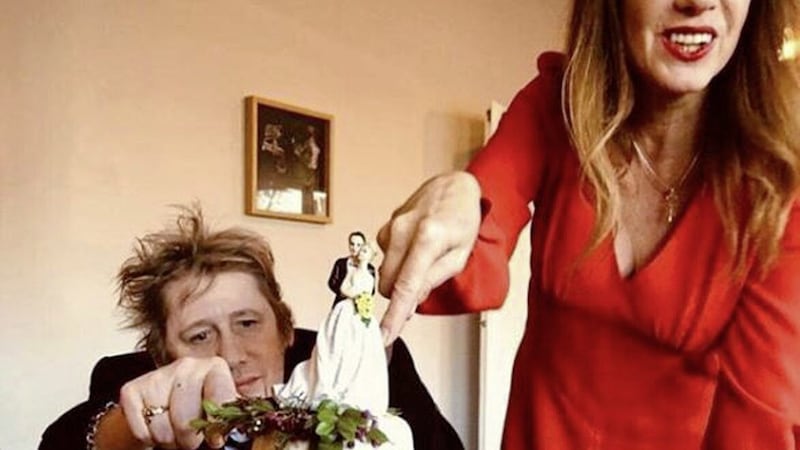Time, BBC One, Sunday
WRITER Jimmy McGovern won critical acclaim when Time first hit our television screens in 2021.
The drama explored the volatile world of prison life through the eyes of an inmate, played by Sean Bean, and a prison officer, portrayed by Stephen Graham.
The painful injustices of the system were shown from their varying perspectives.
Fast forward two years and the series has returned, this time McGovern and co-writer Helen Black basing the drama in a women's jail where the theme of motherhood resonates through the three main characters.
The first episode begins with a mother rushing her three children out to school, slices of toast passed to the kids as they head out the door.
In the next scene, the smartly-dressed mum is in a prison van beside a drug smuggler and a murderer, screaming that she needs to collect her children from school.
"Will you give me my phone please, they don't know where I am," she cries.
Read more:
Writer Jimmy McGovern initially turned down second series of Time
TV Review: Bleak portrayal of life on inside raises serious questions about British justice system
Orla, played by former Doctor Who star Jodie Whittaker, is brought into the prison compound – 90 minutes from home – and the reason for her six-month incarceration is explained.
"I fiddled the leckie [electricity] – everyone said you don't get sent to prison," she tells a guard.
"I didnt tell anyone I was in court, so I dropped my kids off to school as per normal, so I have no idea who's picking them up."
The theme of motherhood and the struggles it entails is clear from the outset through Orla, a clearly distraught single mother struggling to make ends meet.
Her panic and fear is evident.
Desperate to ensure her children are cared for while she is inside, she is forced to turn to her alcoholic mother for help – the only person she can remember the phone number for without her mobile phone.
Her battle for survival is based on keeping her family together on the outside.
“When I came in here, I had a house, a job and a family. Now I’ve got nothing,” she says when she is later told her children have been taken into care.
Jimmy McGovern’s #Time is back on the BBC, now starring Jodie Whittaker, Bella Ramsey and Tamara Lawrance - here’s why you should watch season 2 pic.twitter.com/kamrA8nCf2
— Radio Times (@RadioTimes) November 1, 2023
For young heroin addict Kelsey (played by Bella Ramsey, who shot to fame in Game of Thrones), her journey into motherhood is only beginning as she discovers she is pregnant after being jailed again.
With no body searches allowed in women’s prisons without suspicion, she is able to smuggle drugs into jail, before turning to methadone and trading a cell mate's possessions for other substances.
At first she is intent on an abortion, but changes her mind when she's told that sentencing judges usually go easier on pregnant women.
"I'll be out in three years," she tell her abusive, drug dealer boyfriend.
But the discovery that she is having a baby serves as an incentive to quit drugs, as well as securing a place in the prison mother and baby unit.
The last main character's link to the theme of motherhood is more complex, and painful.
Lifer Abi claims she is in prison after killing her sister-in-law, but it soon emerges it is for something more tragic.
Abi's true crime – killing her own child – is revealed in flashbacks and her crime soon catches up with her as fellow inmates discover the truth.
“I am doing life,” she warns another woman who threatens to expose her identity.
“A few more years means nothing to me."
It soon becomes clear she may not stay alive for her full life sentence, if the other inmates have anything to do with it.
The drama is another eye-opening look into the grim reality of prison life, from the perspective of three women all living on the edge, in different ways.
The scenes are often savage and brutal, cruel and bleak.
While 'time' means different things to each woman, their stories are intertwined through the struggles of motherhood from behind bars.
But their time in prison also reveals the ramifications for their lives on the outside world and the demons they must face.


